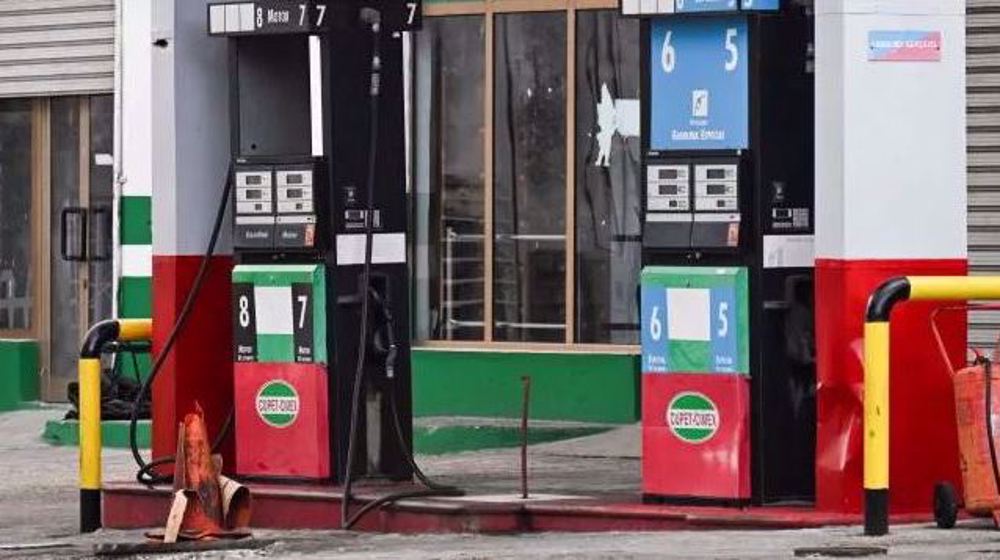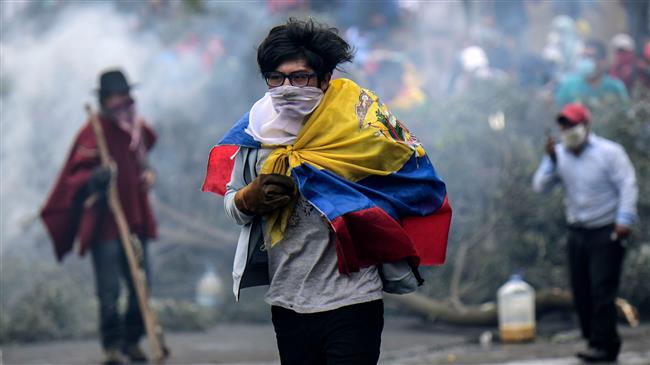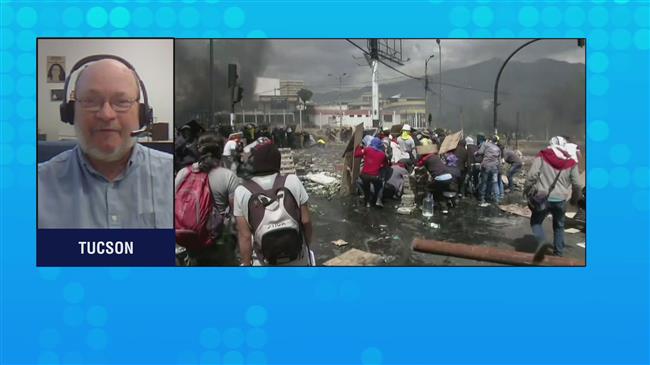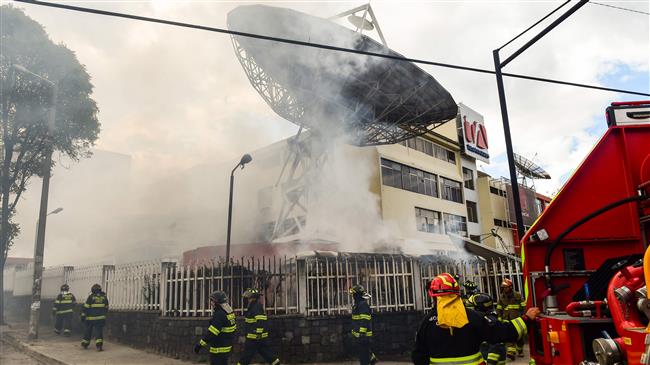Ecuador reverses austerity cuts in deal with indigenous people to end protests
Ecuador has reversed a set of controversial austerity cuts as part of an agreement with indigenous people aimed at ending nearly two weeks of deadly protests that paralyzed the country and forced the government out of the capital, Quito.
The agreement was reached late on Sunday following four hours of negotiations between President Lenin Moreno and Jaime Vargas, the head of the indigenous umbrella group CONAIE.
Under the deal, the Quito government revoked an order that had removed fuel subsidies and led to a sharp hike in fuel prices, the two sides announced in a joint statement.
The austerity measures were introduced 12 days ago to secure a $4.2-billion loan from the International Monetary Fund, triggering angry protests that left seven people dead.
“With this agreement, the mobilizations... across Ecuador are terminated and we commit ourselves to restoring peace in the country,” the statement further said.
In return, leaders of indigenous people agreed to call on their followers to end protests and street blockades that had forced Moreno to relocate the government to the coastal city of Guayaquil.
The president had also ordered the capital and surrounding areas to be placed under curfew and military control.
Prior to the talks, which were mediated by the United Nations and the Catholic Church, violent clashes were underway between police and the protesters in Quito.
The protests were, however, replaced with celebrations when the deal was announced.

Ecuador’s indigenous groups account for a quarter of the country’s 17.3-million population.
Indigenous leaders mobilized thousands of protesters against the government’s IMF-backed austerity plan, which the government argued would save the state 1.3 billion dollars a year.
Responding to their leaders, people from disadvantaged communities from across the Amazon and the Andes had traveled Quito to take part in the protests.
In the Amazon, the protesters seized three oil fields earlier this week, promoting the Energy Ministry to suspend more than two-thirds of its distribution of crude.
Authorities said 1,349 people had been injured and 1,152 detained in the demonstrations.
VIDEO | Press TV's news headlines
Palestinian factions denounce US for offering ‘consular services’ inside West Bank settlement
Iran, Oman FMs meet ahead of third round of indirect nuclear talks with US
VIDEO | UN commemorates Mother Language Day with celebrations
VIDEO | Pakistan, Afghan Taliban trade accusations after border clash
VIDEO | Venezuela races against time to rebuild homes bombed by US
Ex-IAEA chief warns US of ‘horrific’ costs of war on Iran
India’s Modi visits occupied territories to deepen ties with Israel despite Gaza genocide













 This makes it easy to access the Press TV website
This makes it easy to access the Press TV website